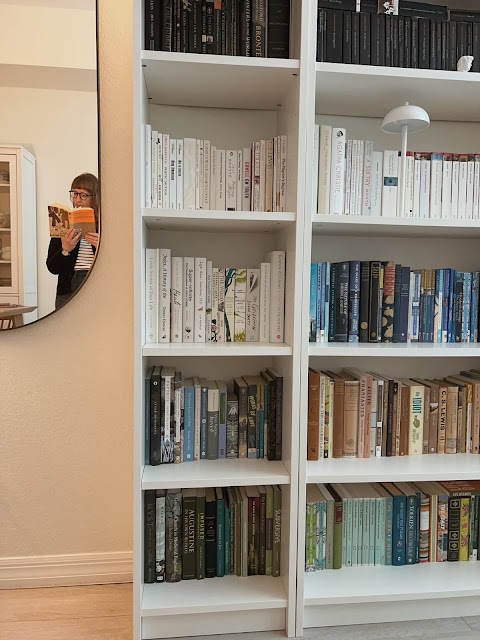When I was growing up, Christmas morning was always a magical time - all the anticipation had been building for the good news of great joy, and the night before we celebrated with a candle-lit service at church where the story was shared again, along with singing the old hymns with modern voices. Then with the delivery of gifts under the Christmas tree, comes another delivery into our world. He came down to us, as an infant and gentiles (Magi) travelled from far to worship him and offer gifts. I had always wondered why we give gifts as a child, and this answered that pondering. As Lancelot Andrewes wrote in his Christmas sermon of 1622 that he preached in front of King James:
Christ was made poor to make us rich, and so ‘offering gifts’ comes very fit. There now remains nothing but to include ourselves, and bear our part with them, and with the angels, and all who this day adored Him. The Magi were Gentiles. So are we. We are to ‘go, and do likewise.’ We cannot say ‘we have seen His star’; the star is gone long since, not now to be seen. Yet I hope for all that, ‘we come to worship.’ [Let] the same day-star be risen in our hearts that was in theirs. For then it will bring us whither it brought them, to Christ.
The Magi followed a star, and may we do the same, though it be risen in our hearts not in the sky. We also are part of the Christmas story today, all these centuries later. In our small ways, we propel the story forward in our participation.
As the rush of pre-Christmas settles down to Christmas Eve and Christmas, may there be a quiet rising of the star in your heart, something deeper sinking in as the love of God rises.
And on Christmas morning, we can hear the music and hear the words with deeper meaning, from old days of tidings and joy.
I've been reading through the Brontë sisters' poems lately, a lovely book my friend gave me. Anne's Christmas poem stuck out to me as a new favourite, as one I have been reading several times as we lead up to Christmas.
I'll let Anne's wondrous words lead us into the these Christmas days. Merry Christmas!
Music On Christmas Morning
Anne Brontë
Music I love—but never strain
Could kindle raptures so divine,
So grief assuage, so conquer pain,
And rouse this pensive heart of mine—
As that we hear on Christmas morn,
Upon the wintry breezes borne.
Though Darkness still her empire keep,
And hours must pass, ere morning break;
From troubled dreams, or slumbers deep,
That music KINDLY bids us wake:
It calls us, with an angel's voice,
To wake, and worship, and rejoice;
To greet with joy the glorious morn,
Which angels welcomed long ago,
When our redeeming Lord was born,
To bring the light of Heaven below;
The Powers of Darkness to dispel,
And rescue Earth from Death and Hell.
While listening to that sacred strain,
My raptured spirit soars on high;
I seem to hear those songs again
Resounding through the open sky,
That kindled such divine delight,
In those who watched their flocks by night.
With them I celebrate His birth—
Glory to God, in highest Heaven,
Good-will to men, and peace on earth,
To us a Saviour-king is given;
Our God is come to claim His own,
And Satan's power is overthrown!
A sinless God, for sinful men,
Descends to suffer and to bleed;
Hell MUST renounce its empire then;
The price is paid, the world is freed,
And Satan's self must now confess
That Christ has earned a RIGHT to bless:
Now holy Peace may smile from heaven,
And heavenly Truth from earth shall spring:
The captive's galling bonds are riven,
For our Redeemer is our king;
And He that gave his blood for men
Will lead us home to God again.





























